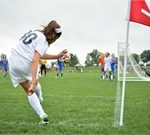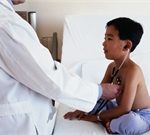
Young athletes who’ve had moderate COVID-19 symptoms should be symptom-free for 14 days and get their doctor’s OK before returning to practices or games, according to a leading group of U.S. pediatricians. An electrocardiogram (EKG) is also recommended for those who’ve had moderate COVID-19 symptoms, the American Academy of Pediatrics (AAP) said in updated guidance. “Exercise and sports offer so many health benefits to youth, and we know that many are eager to return to play,” Dr. Susannah Briskin, an author of the guidance, said in an AAP news release. “We have many suggestions on how to reduce the risks, and they require being candid and forthcoming about anyone who is feeling unwell. Parents, children and coaches need to make safety protocols a priority,” Briskin said. According to the recommendations: Children and teens who’ve been exposed to the new coronavirus, regardless of whether they have symptoms, shouldn’t attend any practices or games for a minimum of 14 days. Parents and guardians must report if a young athlete or anyone in their household has any signs or symptoms of COVID-19 or tests positive for the virus, even if they have no symptoms. Children and teens who are diagnosed with COVID-19 or test positive for the virus shouldn’t participate in sports and should be asymptomatic for 14 days before beginning a gradual return to physical activity. If… read on >


















